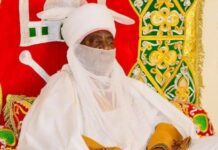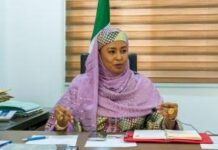Major General Leo Irabor’s appointment as Chief of Defence Staff came as something of a surprise just as his steady rise. Unheralded, the Agbor native has become the highest-ranking military officer in the Nigerian Armed Forces. His unpredictability could be a gamechanger in the war against terrorists, bandits and other criminal elements in the country.
When President Muhammadu Buhari declared in December 2015 that Nigeria had “technically won the war” against Islamist Boko Haram militants, there was widespread disbelief, criticism and dissatisfaction. Although grossly exaggerated, the radical sect was not as potent as they were.
In six years, Boko Haram had ravaged north-eastern Nigeria, killing around 17,000 people, destroying more than 1,000 schools and displacing over 1.5 million people. But the sect’s activities came under check in less than six months of Buhari’s emergence.
According to the president, the militant group could no longer mount “conventional attacks” against security forces or population centres. He added that they had been reduced to fighting with improvised explosives devices (IED) and remained a force only in its heartland of Borno State.
One year later, Buhari repeated the same words during a national broadcast celebrating the capture of “Camp Zairo,” the group’s operational headquarters in Sambisa Forest in the North-East. The emphasis was quite valid.
The military succeeded in pushing Boko Haram out of urban areas and large swathes of territory spanning about 14 Local Government Areas, with estimated size larger than Belgium. The terrorists were not able to launch large-scale attacks as it used to, largely confined to the fringes of Sambisa Forest and the Lake Chad area. Major Gen Irabor was the unsung hero.
As the third Theatre Commander of Operation Lafiya Dole, Irabor was on the frontline of the ferocious battle. Fearless, gallant and courageous, he took the battle to the terrorists and never backed down. Despite obvious sabotage in the military operations in the region, Irabor demystified the ‘mythology’ that it was a conspiracy from some sections of the country against the North-East.
It was his tremendous feat on the frontlines that gave the president so much confidence that the militants have been defeated. Buhari must have thought the troops would sustain the momentum. Things, however, returned to status quo following Irabor’s redeployment.
The diminutive soldier was moved to the Multinational Joint Task Force (MJTF), replaced by Attahiru Ibrahim, the newly appointed Chief of Army Staff. While Ibrahim was criticised for failing to sustain the winning spirit of troops, Irabor was sorely missed.
“When General Lucky Irabor was leaving, he left the Boko Haram insurgents in their degraded state. But the insurgents picked up their hostility shortly after he left,” then Governor of Borno State, Kashim Shettima, lamented.
“Some of our greatest accomplishments in the current counter-insurgency efforts were recorded under army generals who are not from Borno and northern Nigeria.
“The last Theatre Commander {Ibrahim} who is even a northerner had woefully failed to perform.”
After his spell with the MTJF, Irabor climbed to Chief of Training and Operations, Defence headquarters. An alumnus of the Ghana Armed Forces Staff College Ghana, the National Defence College Bangladesh and Harvard Kennedy School of Government Executive Programme, USA, Major Irabor is a trained Engineer from Obafemi Awolowo University and holds two Masters Degrees from the University of Ghana, Accra, and Bangladesh University of Professionals, Dhaka.
As the CDTOPs, he oversaw the training and operations of troops under the direction of the Chief of Defence Staff. Specifically, he undertook periodic reviews of a broad range of policies and activities relating to training and operations in the Armed forces.
In addition to his schedules, he acted as the Chairman of the AFN Committee on COVID-19.
The Committee worked to prevent the spread of coronavirus disease in the establishments of the Armed forces in line with Nigeria Centre for Disease Control protocols. The Committee also give support to the Presidential Task Force on COVID-19 including the deployment of Medical Personnel across the country to boost the available manpower in the management of the Coronavirus pandemic in Nigeria.
Irabor seems tailor-made for the job. As CDS, he is expected to formulate and execute policies, programmes towards the highest attainment of National Security and operational competence of the Armed Forces namely; the Army, Navy and Air Force. The service chiefs would report to him and he then briefs the Minister of Defence.
However, the CDS has assumed something of a ceremonial role. In recent times, the defence chiefs have been redundant, just like their superior, the defence minister with the COAS seemingly more powerful. The likes of Alex Badeh, Ola Ibrahim and more recently Abayomi Olonisakin were mere spectators in the war against insurgency.
Irabor must properly coordinate the armed forces in terms of operations, command, control, resources management and public communication.
Above all, though, he is expected to set strategy for defence, including the future development of the Armed Forces, the conduct of current operations (as strategic commander) and leading relationships with other countries’ Armed Forces. Else, his unprecedented rise and achievements so far would ultimately be termed a fluke.











